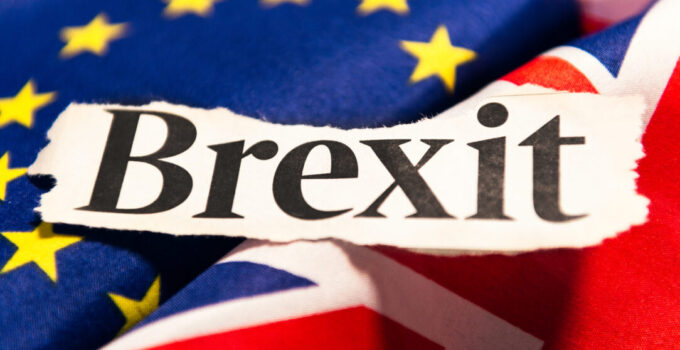Brexit is the term now widely used to describe, Britain’s withdrawal from the Union of European States. Brexit is a combination of the words Britain and exit. The word Brexit was coined by The Economist magazine in 2012 and caught on as shorthand for the proposal that Britain split from the European Union and no longer have a less say on it’s own policies. The important policies of contention are trade, immigration, expenditure in the union, fishing and security.

Speech on Brexit
According to the European Union website : The European Union is set up with the aim of ending the frequent and bloody wars between neighbours, which culminated in the Second World War.
Britain has been debating the pros and cons of membership in a European community of nations almost from the moment the idea was first mooted. It held its first referendum on membership in what was then called the European Economic Community in 1975, less than three years after it joined. At the time, 67 percent of voters supported staying in the bloc which was largely, a union of free trade and the principles of equal trade.
However the debate grew with closer political and sovereign ties being placed on the table.
In 2013, Prime Minister David Cameron promised a national referendum on European Union membership with the idea of finally settling the debate. The options offered to voters were vague and blunt: Remain or Leave and Mr. Cameron was sure that Remain would win.
In his memoirs he later wrote: writing in his memoirs, he admitted that he had underestimated, “the strength of feeling that would be unleashed both during the referendum and afterwards”.
As Britons went to the polls on June 23, 2016, a refugee crisis had made migration a subject of political annoyance across Europe. Consecutive governments in Britain had already allowed mass immigration in a short period, since the 2 nd World War, especially from former colonies. The subject had already been a subject of debate among the people.
The freedom of movement in the EC meant migration was not evenly spread across different states. Millions of former Eastern bloc citizens headed to the UK while some countries received very few immigrants. As a small country sentiments were veering to a halt this trend. According to Wikipedia 550,000 Poles moved to the UK, after 2004 when they joined the EC, more than double the figure that settled in France during the same time.
More contention followed as the EC pressed ahead to invite new states, that were traditionally part of the Soviet bloc to join the EC, annoying Russia with the expansion program.
Russian President, Putin warned Ukraine president Petro Poroshenko:
“We still believe that only systemic adjustments of the Association Agreement, which take into account the full range of risks to Russian-Ukranian economic ties and to the whole Russian economy, will allow to retain existing trade and economic cooperation between the Russian Federation and Ukraine,” Putin wrote in the letter, which is dated Sept. 17. He further warned of reprisals against Ukraine.
The UK election result, though close became decisive: a withdrawal from the bloc, however ill-defined with the support of 52 percent of voters.
Has Brexit been Settled? The Debate Continues
Brexit advocates had saved for another day the complex and contentious question of what should come next. Even now that Britain has settled the terms of its departure, it remains unclear what sort of relationship with the European Union will be agreed for the future. The negotiating and divides on that argument will persist. According to Reuters reports, Trump dangled a ‘very big’ trade deal in front of Brexit Britain.
“We’re going to do a very big trade deal – bigger than we’ve ever had with the UK,” Trump said. “At some point, they won’t have the obstacle of – they won’t have the anchor around their ankle, because that’s what they had.”
However there will always be a need to trade under agreement with the EC as Europe is Britain’s biggest trade partner.
Most voters in England and Wales supported Brexit, particularly in rural areas and smaller cities. That overcame majority support for remaining in the European Union among voters in Scotland, London and Northern
Ireland.




